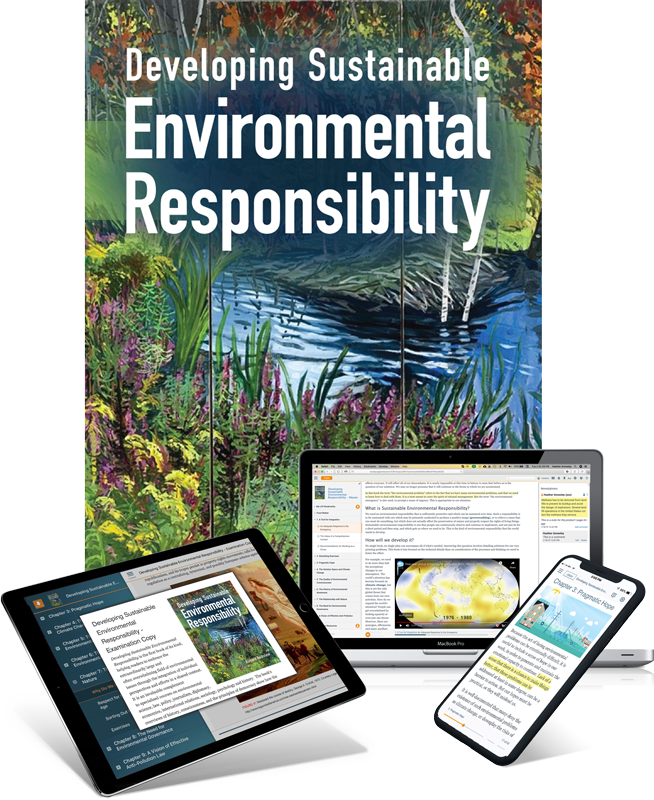Sustainability Policy, Context and Purpose, Activity
Hesiod and the Muse (1891), Gustave Moreau, Musée d'Orsay. In Works and Days, (8th century BC), Hesiod wrote that “the deathless gods who dwell on Olympus made a golden race of mortal men…they lived like gods without sorrow of heart.” (Evelyn-White translation).
As I find myself becoming an old environmentalist I think more and more of the 1990’s as a golden age in which regulatory programs were innovating. Of course it was not really a golden age - the House was earnestly trying to dismantle environmental protection. But at this time the EPA and relevant state agencies were transforming themselves creatively, responding to widespread discomfort with overreliance on “command and control”, which involves authorities telling people what to do and hunting down violators. This is of course necessary – for some – but agencies were showing then that they knew not everyone is a willful violator, and that there are reservoirs of good will that can be tapped to generate willing compliance. They were starting to provide help to those who don’t have the time to develop an understanding of very complex rules. They were realizing they could sometimes get companies to adopt cleaner practices by helping them.
There was, unfortunately, an easy and very wrong way to make regulatory programs friendlier, and that was to simply weaken enforcement. This happened too frequently. Compounding the problem was that new money was not provided to fund the reform effort or the new assistance programs, so it was shifted from enforcement. This created conflicts, broke trust, slowed progress, and obscured the fact that vast improvements were also taking place.
There was, unfortunately, an easy and very wrong way to make regulatory programs friendlier, and that was to simply weaken enforcement. This happened too frequently. Compounding the problem was that new money was not provided to fund the reform effort or the new assistance programs, so it was shifted from enforcement. This created conflicts, broke trust, slowed progress, and obscured the fact that vast improvements were also taking place.
At this time the agency was spending much of its energy defending the environmental mission itself, and never had enough time or resources to complete the revolution that was taking place. At the beginning of the next decade the Bush administration undid a settlement that would have brought about the largest air pollution advances in history, extended already immoral exemptions for energy production, and undertook other substantial rollbacks. This poisoned in the public’s mind the effort by the government to be friendlier to business. About a year after Bush came into office, the entire body of ideas generated by Al Gore’s “Reinvention” campaign, a precious treasury of policies that should have guided our development, was no longer on the web.
Proposals for reform produced by the Common Sense Initiative, EPA’s primary reform effort, should not have been considered political. The new administration could have simply taken ownership of them, as they benefited business as well as the environment. The Democrats didn’t impose an agenda: the ideas were the result of facilitating “multi-stakeholder” consensus-seeking processes. What was produced was what garnered wide agreement. Those who took part were helped to listen to each other and to find their shared interest in the best policies. The stunning news that this actually created trust[1] has still not filtered to the public’s ear. I mourn not just the passing of this golden age of bringing citizens together, but most cruel to me is how so few noticed what EPA termed “constructive engagement”.
The story of the Golden Age That Was Hardly Noticed also involves the awakening to the value of pollution prevention (P2). The Massachusetts Toxics Use Reduction Act was one of dozens of P2 acts passed in the late eighties and early nineties by states, and in 1990 by Congress. In those days you normally heard administrators explaining that to prevent pollution was the central ethic, and how much more intelligent it is to not use toxics – let’s say poison to really get the point – when you don’t have to.
I had the great luck to be part of both of these momentous changes. I worked in the Office of Technical Assistance for Toxics Use Reduction, and my job was to help companies. I worked for an environmental agency, but I had no power to whack anyone. There was no need to run away from me. My services were confidential.
Later, we had engineers in the office, but I was the first employee, and I was a law school graduate. The first phone call I got was from a Fortune 500 company and it was about oils, solvents, and hazardous wastes. I knew nothing about how this company made what they made. But I could ask questions. I knew that some companies had stopped using the worst carcinogenic solvents, finding that some water-based cleaners could work just as well. I asked if they had tried any. The caller, one of the chief engineers, said no, they had not. I had read an article about using ultrasonic cleaning. Had he tried that? Nope. I said that I understood some companies were able to filter the washwater and then reuse the cleaner. He sounded impressed. He talked about his troubles managing acids as if I were an engineer too. I listened without understanding the technical aspects of his story and asked if he had ever tried to regenerate the waste acid, so it could be used again. I told him about a company I had read about that did that. Again, he had never considered that option. This went on for a while. By reading the proceedings of a few conferences and some choice articles, I had gathered enough information to ask questions, and since he had never thought about any of these things, they made an impact. Did he ever try posting materials on an exchange, so that they wouldn’t even be wastes? Had he ever asked his supplier to offer safer substitutes? Had he looked into measuring how much of his toxic solvents he used, to see if he could simply use less and still get things clean enough? He had never done any of these things. He thought these were all great ideas and said he was going to try them.
Now a skeptic might say, of course he would say that, and he was probably lying, and who knows if he ever did any of those things. But after 27 years of doing this work I know that the number of times people did follow through was substantial. We know this because we followed up. We couldn’t require people to report back to us and many did not respond. But about half the time they were happy with the results and wanted us to know what they did. These were all improvements gained without the cost and friction of enforcement. A good deal of the time they wanted the world to know what they did. We generated scores of case studies and many companies shared their successes at conferences and “demonstration” events, even inviting competitors to their facilities to see what they did. When I started at the office, many people told me these things would not happen, but they did. They said we wouldn’t find these opportunities because if they made sense, companies would already be doing them. But companies are busy getting product out the door. They weren’t hunting dollars in this part of the forest. Experts told me that if we had successes, companies would keep them secret as competitive advantages. But many companies opened their doors out of a sense of community, and one company president told me that he was just being practical. He said “if a company like mine has a spill, everyone looks at me like I’m a potential problem too.”
During this time, assistance people like me forged understandings with the enforcement people, who became fairer and friendlier. It was hard at first for some of them to see how much they were feared and hated, and that they needed to know more about the worlds they regulated. The growth of partnerships between government and industry could not have happened without first forging a partnership between assistance and enforcement, inside government.
I call this aspect of the policy revolution Relational Environmental Governance (REG). Think of REG as two-handed government, where there is a hand that can hit you and there is another hand that can help. Does it really make sense to introduce yourself with a smacking hand? Or to extend the hand of friendship first – because government is of, by and for the people - and to keep that smacking hand in reserve for when it’s actually needed? There is nothing corrupt about that if the smacking hand is kept strong, and there is nothing tyrannical about it if that hand is fair and just.
A third, also uncelebrated, aspect of the Golden Age was the use of what I call a “full toolbox” approach. This approach transforms our policy debates from a choice between tools – from arguing over whether to use taxes, trading, or limits, to using everything you can – including grants, loans, right-to-know reporting, cooperative R&D, education, and of particular note, flexible regulation. Massachusetts’ Toxics Use Reduction Act doesn’t mandate that you reduce any particular toxic. It just makes you think about it. We found that when you get people to really look at their process and to measure how much toxic chemical they use, fully three-quarters of them chose to reduce waste and unnecessary toxics use.[2] (Because MA’s TURA requires reporting on chemical use, we were uniquely able to measure progress).[3]
The National Pollution Prevention Roundtable (NPPR), an organization founded when every state was building up their assistance and prevention efforts, issued a report in 2003 that summed up what the nineties achieved: An Ounce of Prevention is Worth 167 Billion Pounds of Cure.[4] Everybody wants to be efficient. This approach saves money and because people took the time to think more deeply about what they do, and to see things from a new angle, they came up with surprising changes that often improved products, or productivity, as well.
What I like most to remember is how I, a committed environmentalist who came into the job suspicious of industry, learned to respect and admire so many people I met in business. I learned something that I wish the American public would understand. Those who fight environmental progress do not represent business. They represent irresponsible, unethical ownership and amoral investment. Most of the people I met while visiting hundreds of factories wanted to do the right thing. The public must learn to distinguish between these two sectors, which are now dominated by the worst actors. Here’s a plan: divide and conquer pernicious environmental resistance by recognizing who are our friends - and who are enemies of our environment. Let’s not call them enemies of us, but regard them as redeemable – for they don’t do what they do out of hatred for us or the earth, they do what they do because they are in thrall to money. Let’s rescue them from their sickness by divesting them of a good bit of it. The regulated community is not monolithic. We must no longer treat the irresponsible as if they represent the whole sector.
The accomplishments of the Golden Age never found sufficient recognition and have almost completely faded from view because of the foolish argument that we cannot afford environmental protection and the credulity of those who have believed that insane logic. The obvious truth is that we cannot afford environmental destruction, and the less obvious truth is that environmental protection does not even mean sacrificing modern comforts. The success of environmentally preferable products and cleaner energy proves that. There is a smarter path than business as usual, but because the irresponsible sector generated misunderstanding about environmental law we have not taken it.
We can pick up the trail - traces remain. The P2 revolution is still happening, even if few notice. Effective programs survive in many states and in quiet corners of federal agencies. NPPR still provides Most Valuable Pollution Prevention awards every year. I have had the privilege of serving on the committee that judges nominations. Although some applicants don’t quite get the point and want credit for good management of waste, for recycling it, most know that our awards are for preventing it from happening in the first place. Last year, Washing Systems of Loveland, OH won an award because they “eliminated Nonylphenol Ethoxylates (NPE) from their commercial laundry detergents and replaced them with chemistries meeting EPA Design for the Environment (DfE) criteria, eliminated phosphates and EDTA, and replaced aromatic and aliphatic hydrocarbons with a non-hazardous, biodegradable, bio-based product.”[5] They saved a third of a million dollars a year. Because NPPR has a budget you could put in a thimble, it could not mount an award ceremony, and Washing Systems presented their award on our behalf to themselves. But they were just awarded EPA’s Green Chemistry award as well, and it is nice to know they have received this recognition with a real ceremony in Washington DC, as they deserve.
The Design for the Environment criteria are not just about avoiding the worst chemicals (the “red list” approach), but about using the safest that can perform the necessary work (the “green list” approach). Washing System’s John Koduru wrote that sodium hydroxide, toxic to human and aquatic life, has historically been the workhorse of the commercial laundry industry due to its low cost. The hundreds of companies no longer using them will replace an estimated three million pounds of sodium hydroxide annually. Koduru wrote me that the leadership of his company “supports Pollution Prevention innovations because they differentiate the company from competitors”….and success has “only strengthened our environmental policies and commitments.” Responsible business is not correctly thought of as extra, or a luxury. It is just good business. Not every story is “win-win”, but very many are, and it is not foolish optimism to look for those golden opportunities.
Citizens can help usher in a return of the Golden Age by recognizing its manifestation today in responsible business. The more we favor companies that do what Washing Systems has done (see the other MVP stories at http://www.p2.org/most-valuable-pollution-prevention-project-awards/) the more others will follow. (The newest round of requests for nominations for Most Valuable Pollution Prevention has just opened – go to http://www.p2.org/). The more we have programs that facilitate deeper understanding, the more good results we will have. If we fund the agencies adequately to work relationally and to focus on prevention first, and to keep the punishing hand strong and in reserve for when it’s needed, we will accelerate progress.
I will not argue with anyone who says the nineties were no Golden Age. There was too much strife and there was not enough investment in what worked. But it showed us that we can have a Golden Age. It showed that we need not engage in disruptive revolution, (except of the poisoning of our futures). It showed us that we can have a voluntary shaping of the economy, a gentle transition. I believe one thing for sure: the Golden Age will not become manifest unless we realize we have the power to bring it into being.
[1] There were several sector efforts – those involving electronics, printing and metal plating were productive. Those involving the auto and oil industries were less so, and that garnered more attention.
[2] Another striking fact was that data reported by companies showed that chemical input over the decade was “approximately 500 million pounds less than what was expected”, (conservatively estimating based on previous patterns of use). This was by no means an unusual finding - similar results have been reported by pollution prevention programs across the country and elsewhere in the world. The Effect of Providing On-site Technical Assistance for Toxics Use Reduction, 2006, https://www.mass.gov/files/ota_effectiveness_study_final_2006.pdf.
[3] The recent “reform” of the federal Toxic Substances Control Act has hindered the spread of such laws through federal preemption of state action. Further reform is needed.
[4] https://www.csu.edu/cerc/researchreports/documents/AnOunceOfPollutionPreventionIsWorth2003.pdf.
[5] http://www.p2.org/2019/03/multimedia-award-presented-to-washing-systems/.
ACTIVITY
If you know a company that has successfully switched from bad chemical X to ok chemical Y, nominate them for an award. If you learn how to operate more cleanly and safely, share your success. If you can’t do either of these, pay attention to the toxics you buy, and learn about safer substitute materials and practices. By asking questions about the risks you take for granted you increase the chances that you will find ways to avoid imposing them on yourself and others. Maybe you can help make the dream of a Golden Age real.
If you know a company that has successfully switched from bad chemical X to ok chemical Y, nominate them for an award. If you learn how to operate more cleanly and safely, share your success. If you can’t do either of these, pay attention to the toxics you buy, and learn about safer substitute materials and practices. By asking questions about the risks you take for granted you increase the chances that you will find ways to avoid imposing them on yourself and others. Maybe you can help make the dream of a Golden Age real.

 RSS Feed
RSS Feed

